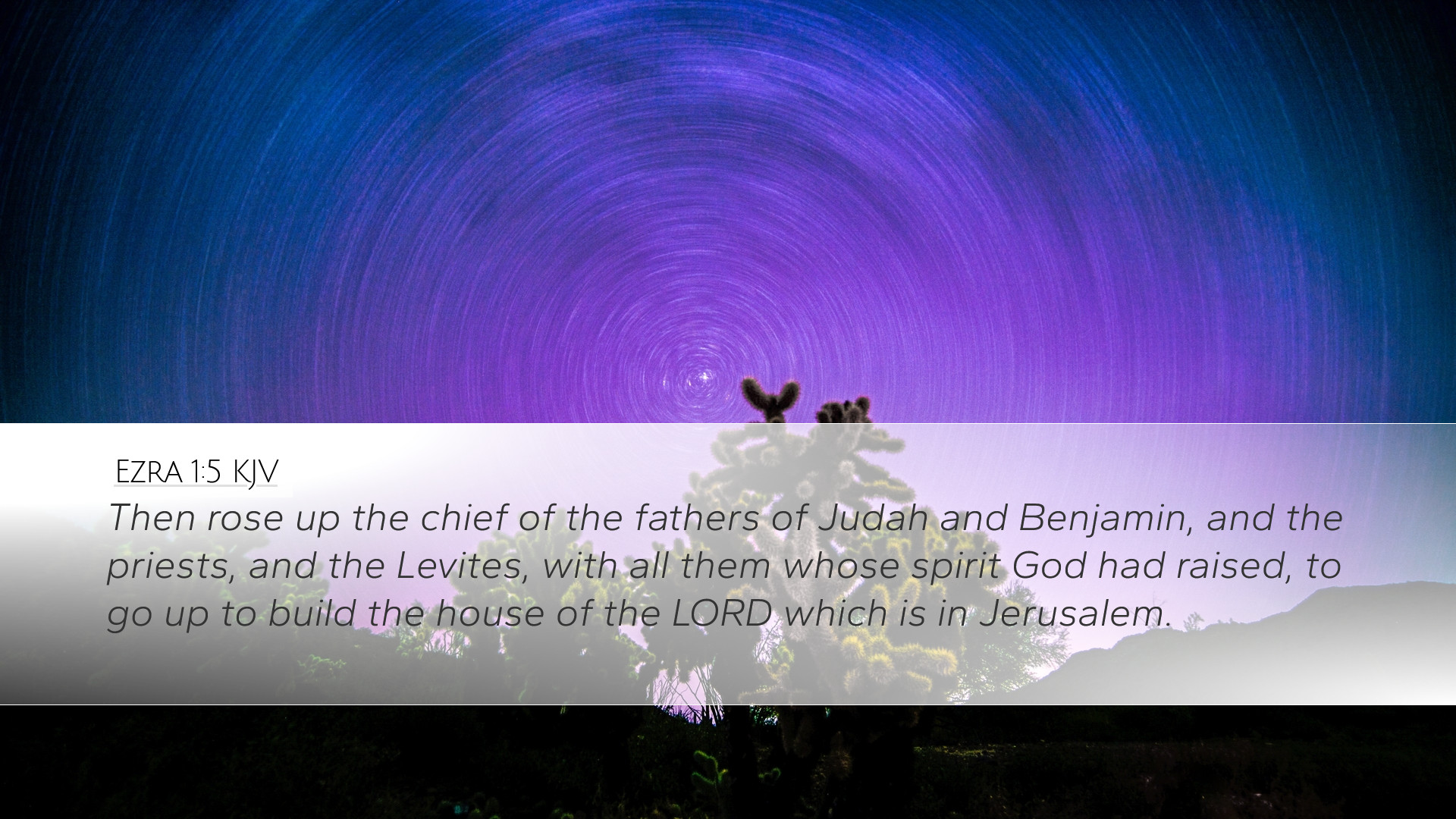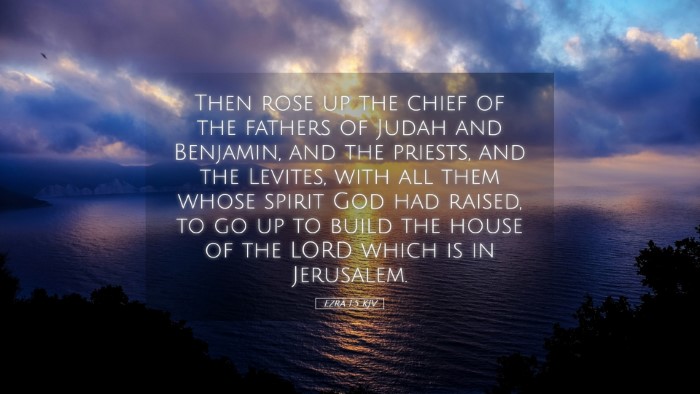Old Testament
Genesis Exodus Leviticus Numbers Deuteronomy Joshua Judges Ruth 1 Samuel 2 Samuel 1 Kings 2 Kings 1 Chronicles 2 Chronicles Ezra Nehemiah Esther Job Psalms Proverbs Ecclesiastes Song of Solomon Isaiah Jeremiah Lamentations Ezekiel Daniel Hosea Joel Amos Obadiah Jonah Micah Nahum Habakkuk Zephaniah Haggai Zechariah MalachiEzra 1:5
Ezra 1:5 KJV
Then rose up the chief of the fathers of Judah and Benjamin, and the priests, and the Levites, with all them whose spirit God had raised, to go up to build the house of the LORD which is in Jerusalem.
Ezra 1:5 Bible Commentary
Commentary on Ezra 1:5
Ezra 1:5 states:
"Then rose up the chief of the fathers of Judah and Benjamin, and the priests, and the Levites, with all them whose spirit God had raised, to go up to build the house of the LORD which is in Jerusalem."
Contextual Background
The book of Ezra marks a significant transition in the history of Israel following the Babylonian exile. This verse captures a pivotal moment where divine providence and human agency converge to initiate the rebuilding of the temple in Jerusalem. The decree from Cyrus highlights God's sovereignty over the affairs of nations and His faithfulness to His covenant people.
Analysis of Key Themes
The Divine Agency
God's Sovereign Initiative: The phrase "whose spirit God had raised" emphasizes the divine initiative in mobilizing the hearts of the exiles. This concept aligns with Matthew Henry, who notes that God often stirs the hearts of His people to fulfill His purpose. This stirring indicates that God is not passive in human affairs but actively engages to lead His people towards restoration.
Impartation of Spirit: The encouragement from God’s Spirit is a recurrent theme in Scripture, demonstrating that the ability or desire to undertake significant tasks for God comes from Him.
Human Response
Leadership Among the People: Henry further emphasizes the role of leaders among the people of Judah and Benjamin, indicating that the call to rebuild requires not just a desire but organized leadership. The referencing of "chief of the fathers" and religious leaders suggests that the task ahead would require unity among the key figures in their society. In this vein, Adam Clarke observes that leadership was crucial in galvanizing the people towards a common goal.
Collective Action of the Faithful: The text recognizes a communal response, "with all them," prompting reflection on the necessity of collective agreement and action within God's people when pursuing divine aims. Clarke highlights that the excitement and urgency in the call to action were shared among the people and not limited to specific leaders.
Application to Today's Church
This verse holds timeless implications for the Church today. Pastors, theologians, and students can draw insights on leadership, community involvement, and the importance of divine inspiration in any endeavor of rebuilding or renewal, whether it be physical, spiritual, or relational.
- Dependency on God: Just as the Israelites depended on God's stirring, modern believers must seek the Lord’s guidance and empowerment for their ministries.
- Importance of Visionary Leadership: Leaders must be attuned to God’s calling and rally others to a vision that transcends individual desires.
- Community Engagement: The call to action is not solely an individual effort; the Church functions best when the many unite under a shared purpose.
Concluding Thoughts
Ezra 1:5 serves as a powerful reminder of God’s faithfulness to His promises, showing how His Spirit equips His people for significant tasks. This call to rebuild the temple goes beyond brick and mortar; it symbolizes the restoration of relationship between God and His people. Through careful reflection on this text, pastors and scholars can inspire hope and action, motivating the faithful to respond to God's call in their own contexts.


